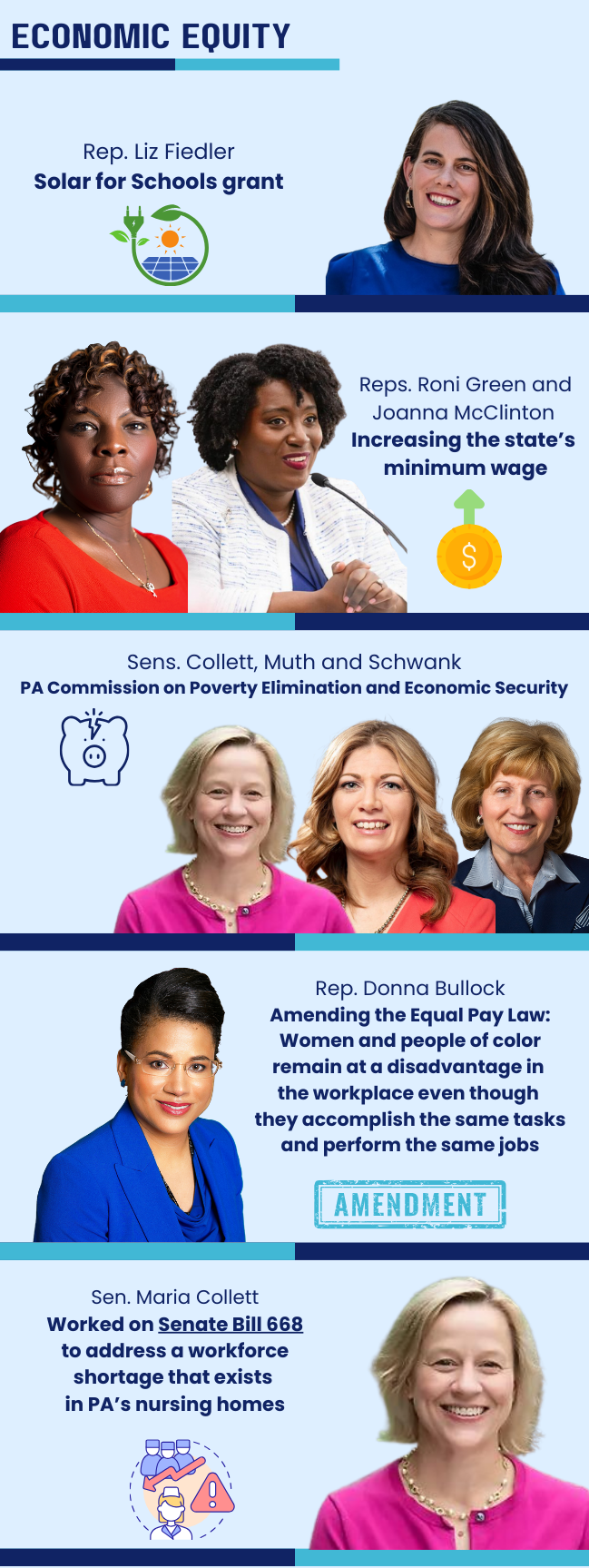May’s focus issue for the month is Economic Equity. At Represent PA we’re excited to use this theme to share some great work that the strong, progressive women legislators are doing on our behalf in Harrisburg.
The women here have all contributed in some way to economic equity improvements in Pennsylvania.

Here’s a list of their contributions:
- Rep. Liz Fiedler (HD-184) champions the Solar for Schools grant that would fund solar energy projects at public k-12 schools, community colleges and career technical schools across Pennsylvania. It has the potential to reduce on-site energy costs and save money for PA school districts as well as create family-sustaining jobs across the commonwealth.
- Rep Roni Green (HD-190) participated with Rep. Joanna McClinton (HD-191) and union workers at an April rally at the Capital, encouraging support for increasing the state’s minimum wage. Minimum wage legislation passed the PA House last June, but has been stalled by the Republican-controlled Senate.
- Senators Maria Collett, Katie Muth and Judy Schwank were instrumental in drafting an act providing for the study of intergenerational poverty; establishing the Intergenerational Poverty Tracking System, the Interagency Workgroup on Poverty and Economic Insecurity and the Pennsylvania Commission on Poverty Elimination and Economic Security; providing for a strategic plan and for reports; and imposing duties on the Department of Human Services and the Secretary of the Budget.
- Rep. Donna Bullock (HD-195) drafted an act amending the Equal Pay Law. Women and people of color remain at a disadvantage in the workplace even though they accomplish the same tasks and perform the same jobs.Yet they aren’t compensated the same as their counterparts.This legislation will prohibit employers from discriminating and paying workers less because of their gender, race or ethnicity. The bill will also place new penalties on employers using such discriminatory wage practices.
- Senator Maria Collett (SD-12) worked on Senate Bill 668 to address a workforce shortage that exists in Pennsylvania’s nursing homes. The shortage, which existed prior to the COVID-19 pandemic, has only grown, as health care professionals have left the field due to burnout.